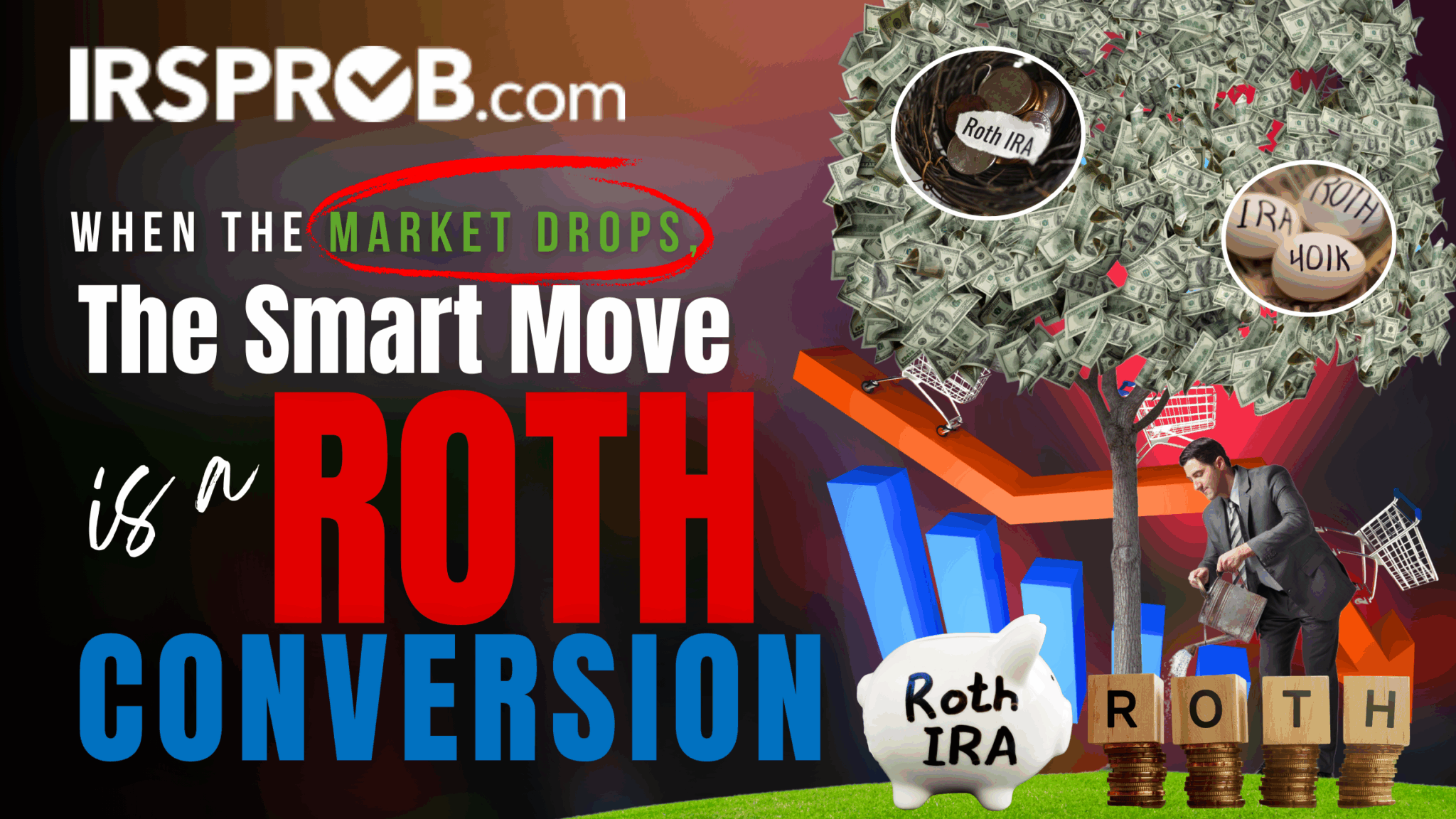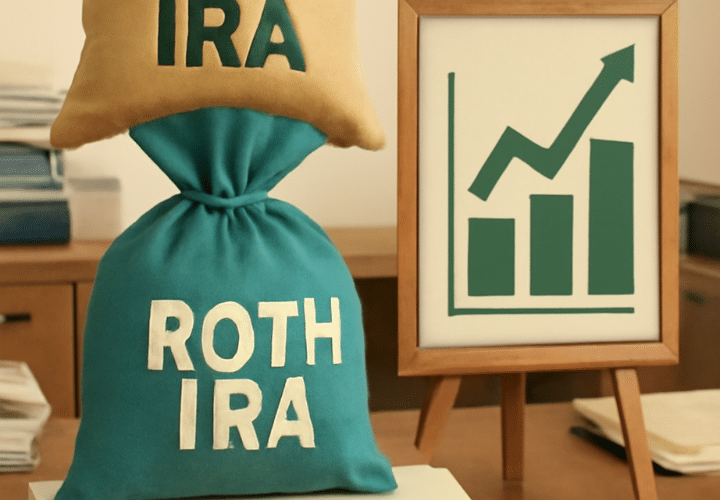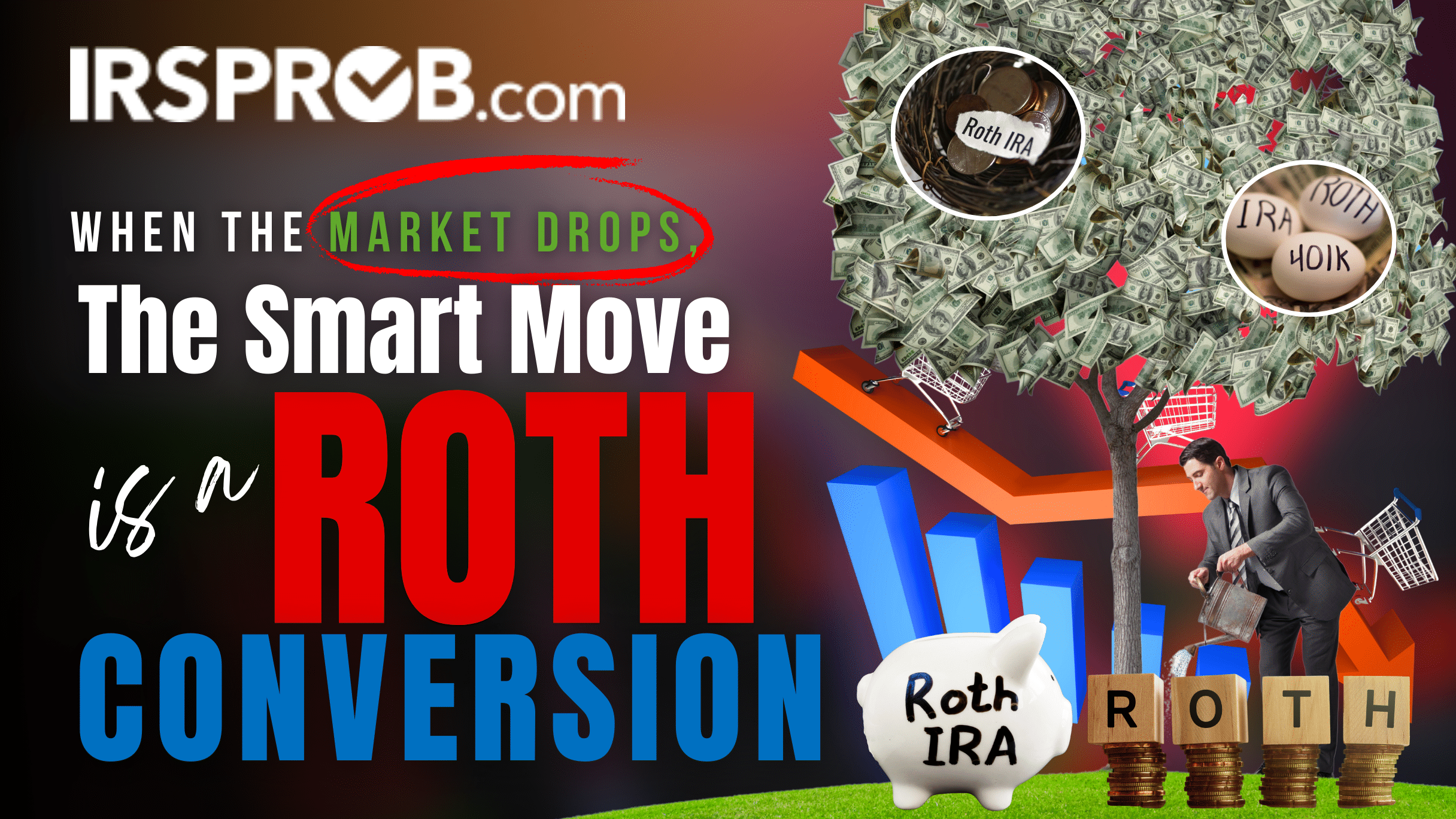When the Market Drops, the Smart Move is a Roth Conversion

When the market’s down, most investors panic. But not you. You’re a long-term thinker. You know the real question is: “What can I do now to win later?” Well, here’s a move that can turn your market losses into future tax-free gains: converting depressed stocks in your traditional IRA to a Roth IRA.
But Wait—What If I Have Losses in My Taxable Account?
Even better! You can sell those depreciated securities in your taxable brokerage account and harvest the losses to offset future gains. It’s like turning lemons into lemonade—and then investing that lemonade for tax-free growth.

Don’t DIY This—Talk to a Tax Pro
Converting to a Roth IRA isn’t a one-size-fits-all strategy. It needs to be coordinated with your tax bracket, your retirement timeline, and your overall financial plan. But if your gut tells you your portfolio is temporarily down and due for a comeback—this could be your moment.

Wait—Why Would I Convert When Everything Is Down?
Because converting to a Roth IRA while your investments are down means you pay less tax on the conversion.
Think of it like buying a vacation home while the real estate market is low. Sure, it looks a little grim now—but you know that view is going to be worth a fortune later. It’s the same with your stocks.
Let’s say you’ve got $100,000 in a traditional IRA. Thanks to the recent dip, your portfolio’s value drops to $75,000. If you convert now, you pay income tax on the $75,000, not the original $100,000. That’s a $25,000 discount—and when the market recovers (which history says it will), you’ve now got all that future growth sitting in a Roth. That means: no taxes ever again on that money.
Tax-free retirement income? Yes, please.
More Than Just a Conversion—It’s a Long-Term Strategy
Sure, you’ll pay ordinary income tax on the amount you convert. But that’s a one-time hit in exchange for a lifetime of tax-free growth. And since the market’s doing its limbo dance (“How low can it go?”), now may be the cheapest time in years to make that move.
You’re essentially resetting your cost basis at a bargain price, and putting those assets into a retirement account where Uncle Sam can’t touch them again. Ever.
Bonus: Roth IRAs are incredible legacy tools. They’re not subject to required minimum distributions (RMDs) during your lifetime, and they pass to your heirs tax-free. That’s some multigenerational wealth planning right there.








